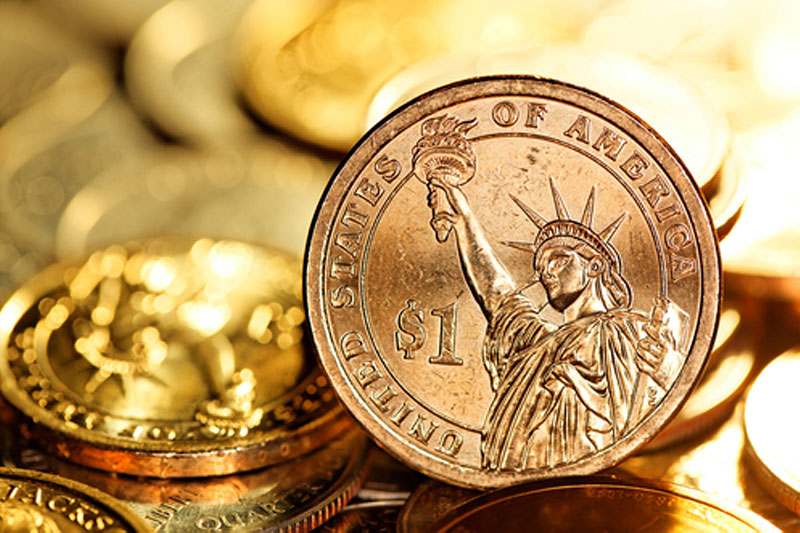Investing.com - The dollar extended gains against other major currencies on Thursday, after comments by U.S. President Donald Trump and upbeat U.S. jobless claims data.
EUR/USD slipped 0.26% to 1.0670.
During a meeting with airline CEOs on Thursday, Trump said he would be announcing something over the next two or three weeks that would be “phenomenal” in terms of tax.
He also said that regulations will be rolled back, but it was unclear if the remarks related specifically to the aviation sector or to the broader U.S. economy.
The comments came after the U.S. Department of Labor said initial jobless claims decreased by 12,000 to 234,000 in the week ending February 4 from the previous week’s total of 246,000.
Analysts had expected jobless claims to rise by 4,000 to 250,000 last week.
Meanwhile, the euro remained under pressure amid concerns over the possibility of a Brexit or Trump-style shock result in France’s upcoming presidential election.
Worries over elections in the Netherlands, Germany and possibly Italy, as well as the ongoing row over Greece's bailout added to concerns over political risk in the euro area.
The pound was steady, with GBP/USD at 1.2535.
USD/JPY jumped 0.99% to 113.04, while USD/CHF advanced 0.64% to 1.0009.
The Australian and New Zealand dollars were weaker, with AUD/USD down 0.24% at 0.7626 and with NZD/USD tumbling 1.05% to 0.7186.
In a widely expected move, the Reserve Bank of New Zealand held the benchmark interest rate at a record-low 1.75% at the end of its policy meeting on Thursday.
Commenting on the decision, RBNZ Governor Graemme Wheeler said any tightening in monetary policy might be at least two years away, adding "we're happy with the track that we have."
Also Thursday, the National Australia Bank said its business confidence index ticked down to 5 in the fourth quarter from a reading of 6 in the third quarter, whose figure was revised from a previously estimated reading of 5.
Meanwhile, USD/CAD was down 0.10% at 1.3131, off session lows of 1.095.
Statistics Canada reported that new housing price inflation rose 0.1% in December, disappointing ecpectations for an increase of 0.2% and following a 0.2% gain the previous month.
The U.S. dollar index, which measures the greenback’s strength against a trade-weighted basket of six major currencies, was up 0.31% at 100.45, not far from Tuesday’s one-week high of 100.69.
